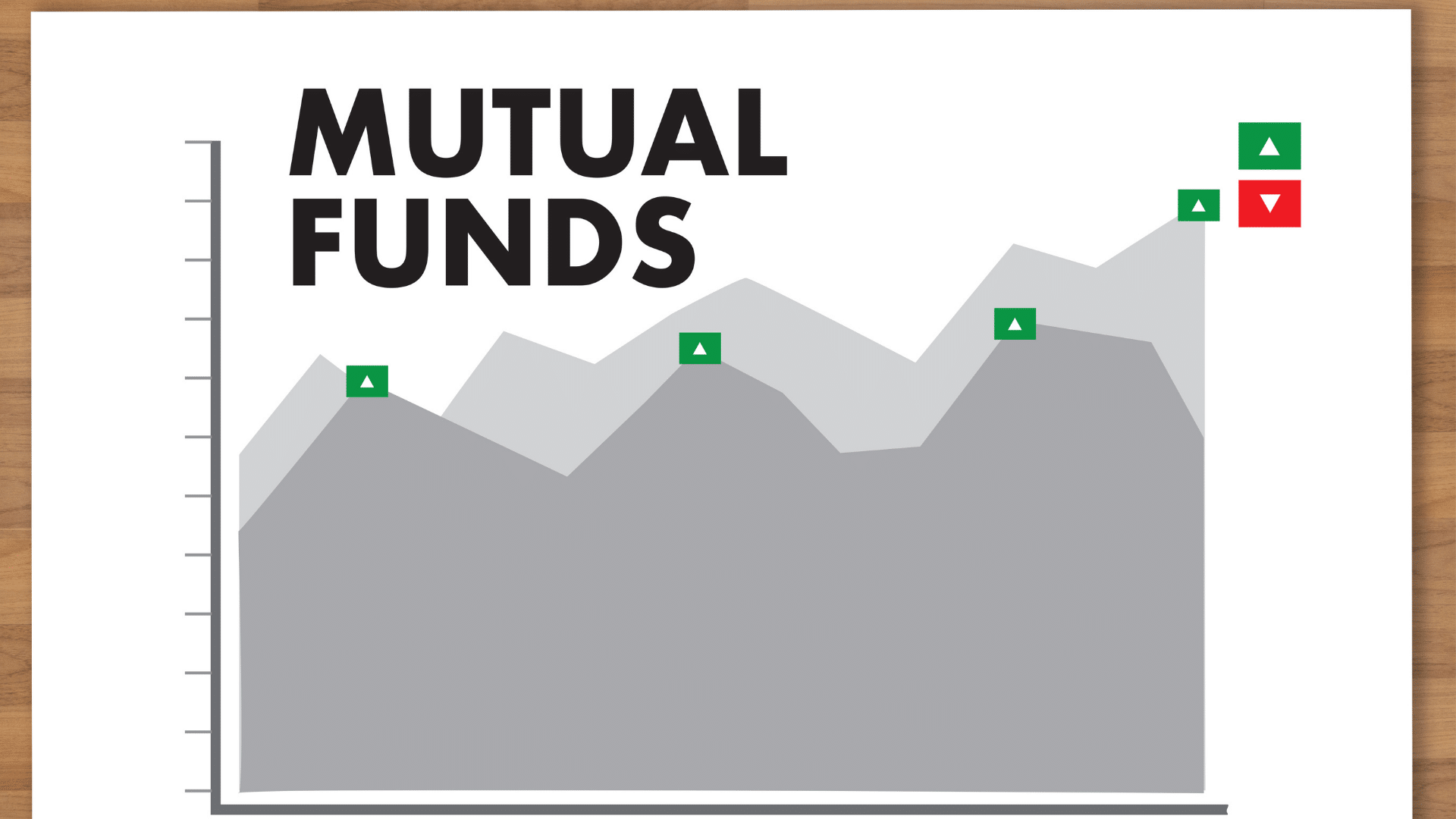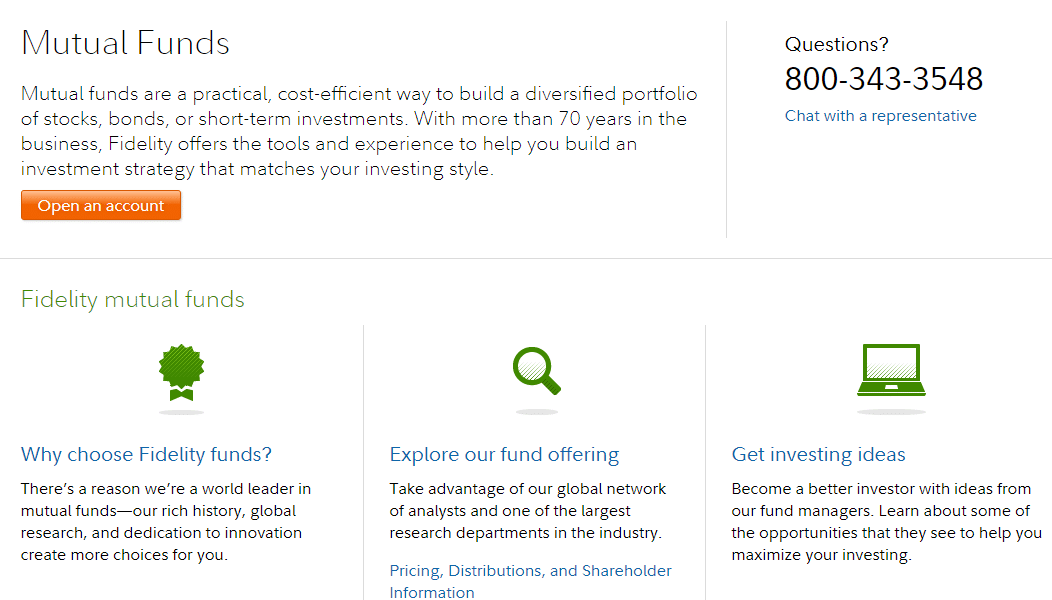Investors who are new to the capital markets may not know what to invest in – there are hundreds of investment assets available.
Since investing requires thorough due diligence, this may be overwhelming for beginner traders, who may not know the capital markets. This is where mutual fund investments come in.
Mutual funds bundle capital from many investors and distribute it for them on many different investments.
Many investors cannot or do not want to constantly worry about looking for the best investment opportunities in the international stock, bond, or real estate markets.
This guide will break down what mutual funds are and discuss the best mutual funds to invest in.
NOTE: You can get your free mutual funds investment PDF below.
What are Mutual Funds
You can think of a mutual fund as a pot into which many investors deposit money.
The money is then invested in different sectors in the capital markets.
Consequently, profits from these investments are then shared among the investors in the mutual funds on a prorated basis. The primary advantage of mutual funds is the spread of market risks among several investors.
The investor acquires shares in the fund. According to these shares, the investor participates in the performance of the fund. In this respect, a fund component is comparable to a share.
Mutual funds are also called active funds because an investment team actively manages them.
NOTE: You can get the best free charts and broker for these strategies here.
Investing in Mutual Funds
The principle of an investment fund is simple: A fund company sets up a fund with a specific investment focus. Investors can buy shares in the fund by investing a larger amount once or depositing money regularly via a savings plan. In this way, the company bundles the capital of many investors in the fund, and a large asset is created.
Industry professionals strictly make the management and investment decisions about the fund.
Depending on the fund’s focus, they can use it to buy shares, bonds, real estate, commodities, or other funds.
There are different types of mutual funds. They differ in which forms of investment they invest in the money entrusted to them. Here are the types of mutual funds available to invest in:
Equity Funds
Equity funds invest their money in listed public companies.
With an equity fund, you do not invest your money in a single share but various stocks. In practice, an equity fund is often made up of 50 stocks and more. If one of these shares loses value, the loss can be compensated by the positive development of other shares.
When investing in an equity fund, you benefit from the price increases of the individual shares and the dividends that the stock corporation distributes to its shareholders.
The value of an equity fund is determined by the price of the shares it contains, leading to strong fluctuations in value in the short term.
Bond Funds
Bonds offer investors fixed-income securities.
A bond fund invests investors’ money in interest-bearing securities such as government bonds or corporate bonds. If you expect regular interest or income, this type of fund is interesting for you.
You invest in fixed-income securities of states, countries, or companies.
Many companies and almost all countries in the world regularly issue interest-bearing bonds to pay for their expenses or finance new projects. The amount of interest depends directly on the risk.
Money Market Funds
Money market funds invest, for example, in fixed-income securities with short-term maturities, promissory notes, and in term deposits. Their return is highly dependent on the current interest rate level.
Money market funds are usually used for parking money in the short term.
Big players such as banks, larger companies, or even the state borrow or make money available at short notice on the money market.
Money market funds invest investors’ money in these interest-bearing securities. These include, for example, daily allowances or term deposits with a remaining term of less than one year.
Like a private individual who takes out a loan, the player in the money market also pays interest on it. This interest results in the income of the fund.
Real Estate Funds
An open-ended real estate fund invests the money in various properties such as hotels, offices, shopping centers, logistics, or residential properties. This allows you to invest in attractive properties even with smaller contributions without spending time on managing them yourself.
Most real estate funds rely on REITs (Real Estate Investment Trusts).
REITs invest their assets in real estate, real estate investments, and mortgage loans. They generate income from rents, distributions, and interest. One advantage of REITs is that they do not have to pay corporate tax on their earnings. They also must distribute 90% of their profits to investors.
Mixed Funds
Mixed funds combine different asset classes such as equities, bonds, and, if necessary, commodity securities. They are therefore very flexible and adaptable.
As an investor, mixed funds allow you to take advantage of the opportunities offered by different markets in one fund without having to be an expert.
The return opportunities of the funds depend on the composition and weighting of the asset classes.
The included shares can ensure positive performance through price increases and dividends. The fund management of a mixed fund can flexibly adjust the weighting of the asset classes as part of the fund-specific investment concept.
If, for example, the prices on the stock markets fall temporarily, investments can be made more in bonds, and opportunities can thus be exploited or losses mitigated.
Funds of Funds
Funds of funds are a type of fund that invests in other mutual funds.
Funds of funds can include various equity and bond funds, but also real estate and commodity funds. Funds of funds have the disadvantage that they are usually very cost-intensive because they include the fees for managing the individual funds and the fee for managing the fund of funds.
How to Invest in Mutual Funds Online
Nowadays, you no longer need to visit your broker’s offices to set up a mutual fund account.
You can do this online, by yourself. Although there are several investment websites where you can purchase mutual funds, there are three primary ways of investing in mutual funds:
Through Investment Companies
This involves buying mutual funds directly from companies that structure and manage them on behalf of clients.
These companies range from publicly traded corporations such as JP Morgan to private equity firms like BlackRock. The primary advantage of buying mutual funds from these companies is that you do not incur brokerage fees.
Through Financial Services Companies
These companies often offer investors exposure to various types of mutual funds.
These financial services companies structure their own mutual funds and offer investors exposure to mutual funds offered by rival companies.
However, you may incur an additional fee to access outside funds. The most notable financial services companies offering mutual funds include vanguard and Fidelity group.
Through Brokerages
These are traditional brokerage houses. They allow you to open mutual funds’ accounts just as you would equities trading accounts.
However, they are the most expensive options since you will be charged transaction fees and account maintenance fees. On the upside, they offer access to every type of mutual fund in the market.
TD Ameritrade, JP Morgan, and E*TRADE are some of the top mutual funds brokerage firms.
Now that you are familiar with how to buy mutual funds online, here are some of the factors you must consider:
- Long-term performance
- Continuity of performance
- Performance in different market phases (how does a fund fare in rising and falling markets?)
- An experienced fund management
Best Mutual Funds for Beginners
The criteria for choosing the best mutual funds for beginners primarily depends on past performance, the complexity of the fund’s structure, and the management fees involved.
With this in mind, here’s our top 5 pick for the best mutual funds for beginners:
#1: Dodge and Cox Global Stock Fund
- Category: Global Large-Stock Value
- AUM: $12.2 billion
- Dividend yield: 1.1%
- Expenses: 0.62%
- One-year total return: 56.2%
#2: DoubleLine Total Return Bond Fund Class N
- Category: Intermediate Core-Plus Bond
- AUM: $49.4 billion
- Yield: 2.9%
- Expenses: 0.73%
- One-year total return: 1.3%
#3: Federated Hermes Corporate Bond Fund
- Category: Corporate Bond
- AUM: $945.9 million
- Yield: 2.1%
- Expenses: 0.86%
- One-year total return: 5.4%
#4: Fidelity Tax-Free Bond
- Category: Muni National Long
- AUM: $4.6 billion
- SEC yield: 1.0%
- Expenses: 0.25%
- One-year total return: 6.7%
#5: Invesco Main Street Fund Class A
- Category: Large Blend
- AUM: $11.0 billion
- Dividend yield: 0.7%
- Expenses: 0.83%
- One-year total return: 42.3%
#6: Vanguard Long-Term Corporate Bond Index Fund Admiral
- Category: Long-term bond
- AUM: $5.3 billion
- SEC yield: 3.4%
- Expenses: 0.07%
Best Mutual Funds to Invest in 2021
Here are the top-performing mutual funds in 2021:
- Bridgeway Small-Cap Value Fund –YTD Return: 37.80%
- DFA U.S. Small Cap Value Portfolio Institutional Class YTD Return: 35.35%
- Bridgeway Ultra-Small Company Market Fund – YTD Return: 35.13%%
- MassMutual Small Company Value Fund Class I – TD Return: 32.86%
- American Century Small Cap Value Fund R6 Class – YTD Return: 32.65%
- Hartford Small Cap Value Fund Class R5 – YTD Return: 32.49%
- DFA U.S. Targeted Value Portfolio Institutional Class – YTD Return: 32.33%
- AB Small Cap Value Portfolio Advisor Class – YTD Return: 32.30%
- Columbia Small Cap Value Fund I Institutional 2 Class – YTD Return: 28.60%
- JPMorgan Small Cap Value Fund Class R5 – TD Return: 28.05%
Fidelity Mutual Funds
Fidelity Investments Inc. is an American multinational financial services corporation founded in 1946 and one of the largest asset management companies globally with an estimated $4.9 trillion in assets under management.
Among a host of financial services provided, it has a large family of mutual funds.
It offers over 10,000 funds structured by Fidelity Investments Inc. and other companies.
Investing in Fidelity Mutual Funds exposes you to hundreds of fund companies, allowing you to explore your options. That means you can structure your investments through thematic and sector investing, ranging from all asset classes, regions, and sectors.
Here are some of the top Fidelity Mutual Funds:
#1: Fidelity Advisor Technology Fund Class A
- Annual expense ratio: 1.01%
- One-year returns: 51.4%
- Six-months returns: 11.4%
#2: Fidelity Select Semiconductors Portfolio (FSELX)
- Annual expense ratio: 0.7%
- One-year returns: 69.7%
- Six-months returns: 23.3%
#3: Fidelity Advisor Small Cap Value Fund Class M (FCVTX)
- Annual expense ratio: 1.46%
- One-year returns: 78.9%
- Six-months returns: 28.6%
#4: Fidelity Real Estate Income Fund (FRIFX)
- Annual expense ratio: 0.73%
- One-year returns: 28.3%
- Six-months returns: 12.8%
Lastly
If you want to invest in funds, you should first determine your risk profile.
The more risk you want to take, the larger the equity portion of your investment can be.
In addition, you should make sure to spread the risk when making your investment decision. In other words, invest globally rather than regionally, across industries rather than industry related.
NOTE: You can get your free mutual funds investment PDF below.

Stelian is an aggressive, success-driven, and highly collaborative entrepreneurial trader with 13 years of experience trading within financial markets.
Stelian is a disciplined investor with a passion for trading and a solid understanding of global markets.


